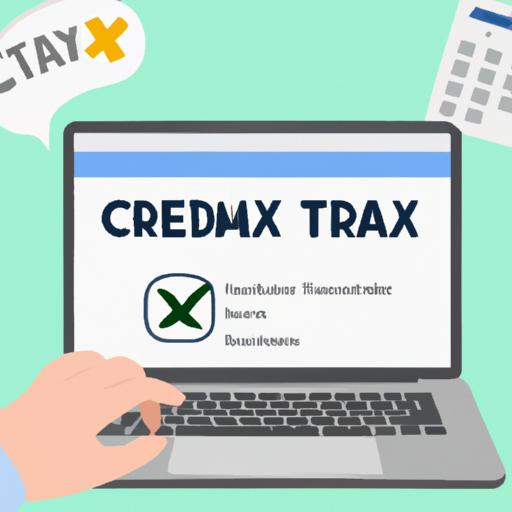ERC Tax Credit Deadline: Your Key to Maximizing Savings
Introduction
In the realm of tax credits, the Employee Retention Credit (ERC) stands out as a valuable opportunity for businesses to save on expenses. This credit incentivizes employers to retain employees during challenging times, providing a financial boost when it’s needed most. However, one crucial aspect that can’t be overlooked is the erc tax credit deadline.
The ERC Tax Credit Deadline holds immense significance in ensuring that businesses can take full advantage of this beneficial program. By understanding the ins and outs of this deadline, you can navigate the process smoothly and capitalize on the potential savings it offers. Let’s delve into the essence of ERC Tax Credit and why its deadline is a critical factor for businesses of all sizes.
Understanding ERC Tax Credit
A. What is ERC Tax Credit?
The Employee Retention Credit (ERC) is a valuable tax credit provided by the government to incentivize businesses to retain employees during challenging economic times. This credit was introduced as part of the CARES Act in response to the COVID-19 pandemic, aiming to support businesses and preserve jobs. Essentially, the ERC allows eligible employers to claim a tax credit against certain employment taxes based on qualified wages paid to employees.
B. Eligibility Criteria for ERC Tax Credit
To qualify for the ERC Tax Credit, businesses must meet specific criteria set forth by the IRS. Eligible employers include those who experienced a significant decline in gross receipts or were subject to government-mandated shutdowns due to the pandemic. Additionally, certain limitations apply based on the size of the business and the number of employees retained during the designated period. Understanding these eligibility requirements is crucial to determine if your business qualifies for this beneficial tax credit.
C. Benefits of ERC Tax Credit
The ERC Tax Credit offers a range of benefits to eligible employers, including providing financial relief during challenging economic conditions. By claiming this credit, businesses can offset a portion of their employment tax liabilities, leading to significant cost savings. Moreover, the ERC encourages businesses to retain employees, fostering workforce stability and continuity. Understanding the benefits of the ERC Tax Credit can help businesses leverage this opportunity to navigate through uncertain times successfully.
ERC Tax Credit Deadline
A. Importance of Meeting Deadline
Meeting the ERC Tax Credit Deadline is not just a mere formality; it holds the key to unlocking significant financial benefits for your business. By adhering to the specified deadline, you ensure that your application for the credit is processed in a timely manner, allowing you to receive the funds you’re entitled to without unnecessary delays. Additionally, meeting the deadline demonstrates your commitment to compliance and responsible financial management, enhancing your reputation as a reliable and conscientious business entity.
B. Consequences of Missing Deadline
On the flip side, missing the ERC Tax Credit Deadline can have detrimental consequences for your business. Failure to submit your application on time may result in delayed processing or outright rejection of your claim, depriving you of the valuable tax credits you could have received. Moreover, missing the deadline could lead to missed opportunities for financial relief during challenging times, impacting your bottom line and overall financial stability. It’s crucial to stay vigilant and ensure that you meet the deadline to avoid these negative repercussions.
C. How to Calculate Deadline
Calculating the ERC Tax Credit Deadline involves understanding the specific timelines and requirements set forth by the IRS. To determine the exact deadline for your business, you need to consider factors such as the applicable tax year, the date wages were paid, and any relevant updates or extensions provided by regulatory authorities. By staying informed and diligent in your calculations, you can accurately pinpoint the deadline and take the necessary steps to meet it in a timely manner.
Tips for Filing ERC Tax Credit Before Deadline
A. Gathering Necessary Documentation
Before diving into the process of filing for the ERC Tax Credit, it’s crucial to ensure that you have all the necessary documentation in place. This includes records of employee wages, healthcare costs, and other relevant financial information. By organizing and compiling these documents ahead of time, you can streamline the filing process and avoid any last-minute hassles.
B. Working with a Tax Professional
Navigating the complexities of tax credits can be daunting, especially when it comes to the ERC. Working with a knowledgeable tax professional can provide invaluable guidance and expertise to ensure that you maximize your potential savings. Their insights can help you uncover additional opportunities and avoid common pitfalls, ultimately enhancing your chances of a successful ERC Tax Credit claim.
C. Utilizing Online Resources
In today’s digital age, a wealth of resources is available online to assist businesses in understanding and applying for the ERC Tax Credit. From official IRS guidelines to informative articles and calculators, leveraging these online tools can empower you to make informed decisions and stay on top of important deadlines. By utilizing these resources effectively, you can enhance your ERC Tax Credit filing process and optimize your savings potential.
Common Mistakes to Avoid When Filing ERC Tax Credit
A. Incorrectly Calculating Credit Amount
One of the most common mistakes businesses make when filing for the ERC Tax Credit is incorrectly calculating the credit amount. This can lead to missed opportunities for maximizing savings and potentially result in financial losses. It’s crucial to ensure accuracy in calculating the credit amount by following the guidelines provided and seeking assistance from tax professionals if needed.
B. Missing Important Deadlines
Missing important deadlines is another pitfall to avoid when filing for the ERC Tax Credit. Timeliness is key in securing the benefits of this program, and failing to adhere to deadlines can result in missed opportunities for savings. Stay informed about the specific deadlines related to the ERC Tax Credit and make sure to submit all required documentation within the stipulated timeframe to avoid any setbacks.
C. Failing to Provide Adequate Documentation
Failing to provide adequate documentation is a common error that can hinder the successful filing of the ERC Tax Credit. Proper documentation is essential in supporting your claims and ensuring compliance with the program’s requirements. Keep meticulous records of employee retention and payroll data to substantiate your eligibility for the credit and avoid any complications during the filing process.





